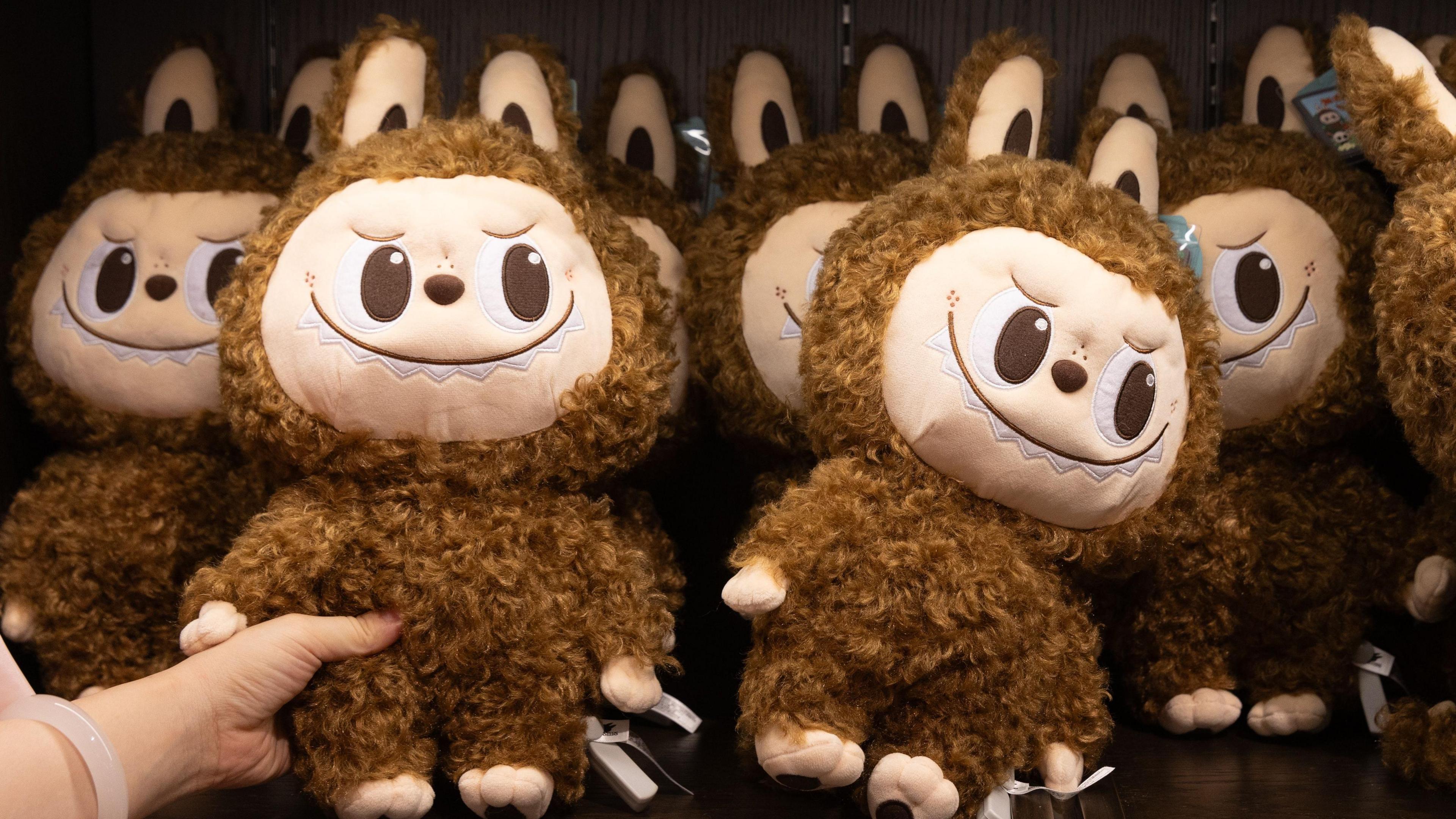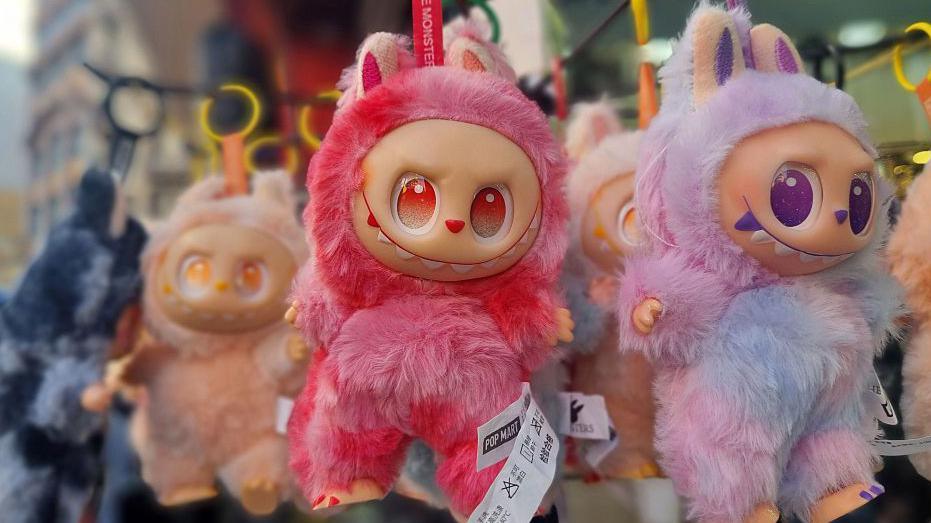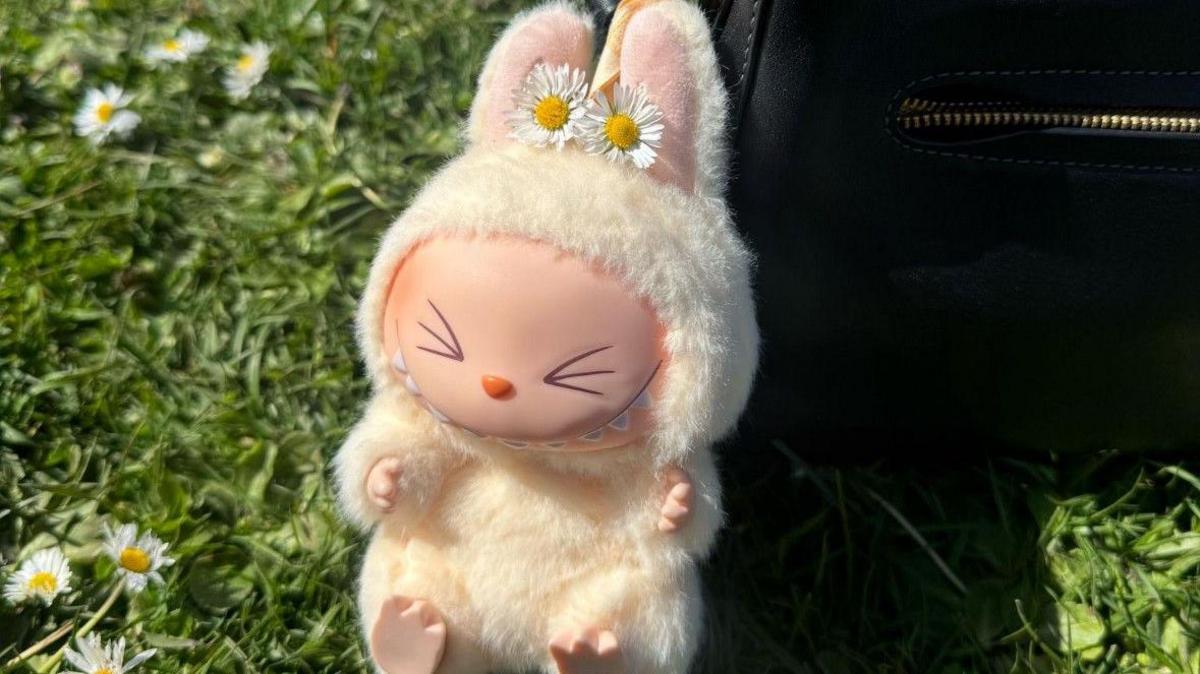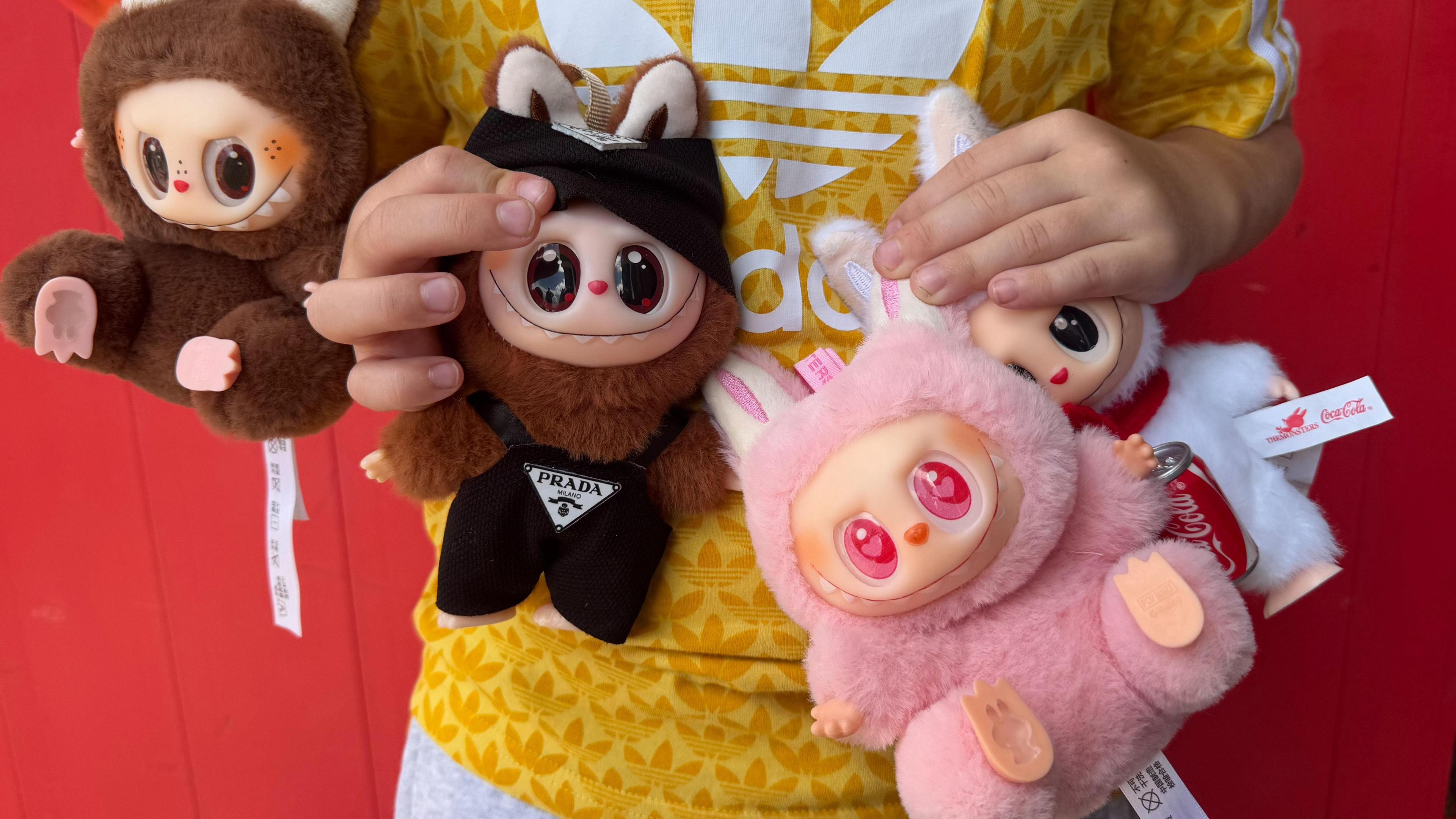Warning over choking risk from fake Labubu dolls

Labubu fans are being warned to avoid buying from unlicensed street sellers
- Published
A south-west London council is warning of the dangers to children after seizing more than 200 fake dolls in just two months.
Sutton Council's Trading Standards team said there has been a rise in "dangerous, counterfeit Labubu dolls" which it said is fuelled by the brand's online popularity.
The council said fake toys pose choking risks from small parts like hands, feet and eyes easily coming off and poor-quality stitching and stuffing.
They said consumers should beware and avoid buying from unlicensed street sellers or unverified online sources.
The council said buyers should check for official branding - genuine Labubu dolls have a holograph sticker and a scannable QR code.
The elf-like creatures from Chinese toy maker Pop Mart have become a global sensation, but the word itself doesn't mean anything.
It's the name of a character in The Monsters toy series created by Hong Kong-born artist Kasing Lung.
The dolls have vinyl faces and plush bodies, and come with a signature look - pointy ears, big eyes and a mischievous grin showing nine teeth.
The retailer's official website claims Labubu dolls are "kind-hearted and always wants to help, but often accidentally achieves the opposite".

Labubu dolls have become a collector's item in many countries
According to Forbes, the popularity of Labubu dolls helped parent company Pop Mart more than double its total revenue to £1.33bn ($1.81bn) last year.
As a result of their desirability, the number of fakes has risen.
Between July and August 2025, Trading Standards officers from Kingston and Sutton seized more than 230 suspected counterfeit dolls, said the council.
Inspections revealed safety failures such as toys that are made from unverified materials that have not been tested to UK safety standards and may contain harmful chemicals.
The packaging of counterfeit dolls often has falsified markings, misleading consumers into believing they are safe, the council warned.
Consumer who think they may have bought a dangerous toy are advised to stop children from playing with it and report it to Trading Standards via the Citizens Advice Consumer Service. , external
Listen to the best of BBC Radio London on Sounds and follow BBC London on Facebook, external, X, external and Instagram, external. Send your story ideas to hello.bbclondon@bbc.co.uk, external
- Published20 June

- Published23 May

- Published3 August
